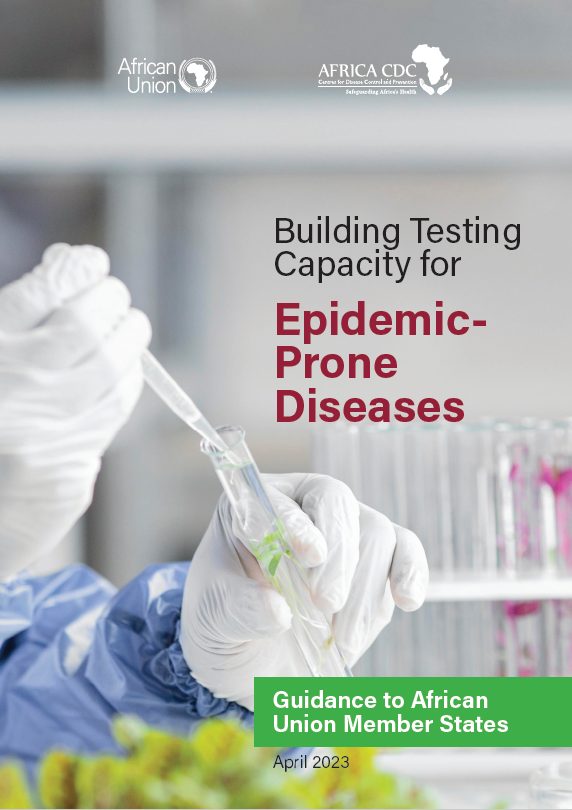Executive Summary
The provision of health and other services in the African region is challenging due to protracted humanitarian emergencies, poverty, lack of political commitment, and fragile health systems. This has resulted in a number of retrograde health indicators, an increase in the burden of infectious diseases, and the emergence and re-emergence of high-risk pathogens. Over the last few decades, many outbreaks and epidemics have been reported across the region with the potential for local health and socioeconomic impact as well as international spread, including Yellow fever, Rift Valley fever, Mpox, measles, crimean-congo Haemorrhagic fever, Dengue fever, Chikungunya fever, Ebola virus diseases, Marburg virus disease, Cholera, and COVID-19. Most of these outbreaks were not detected early due to the lack of real-time surveillance, lack of optimal functional laboratory networks, inadequate diagnostic testing capacity at both national and peripheral levels of healthcare, inadequate human and other resources, and lack of adequate technical and managerial capacities. Through its Africa Task Force for Novel Coronavirus (AFTCOR) Laboratory Technical Working Group, the Africa Centres for Disease Control and Prevention (Africa CDC) has developed guidance on “Building Testing Capacity for Epidemic-Prone Diseases”. The aim of this guidance is to enhance the surveillance and diagnostic capacity of African Union (AU) member states. The guidance provides the recommended testing approaches for surveillance and clinical diagnosis of epidemic-prone diseases, and details on the diagnostic technologies and laboratory capacity needed to conduct testing. Recommendations are provided on leveraging existing laboratory capacity to establish readiness to prevent, detect and respond to emerging and epidemic-prone infectious diseases, based on evidence and best practices for disease control.
